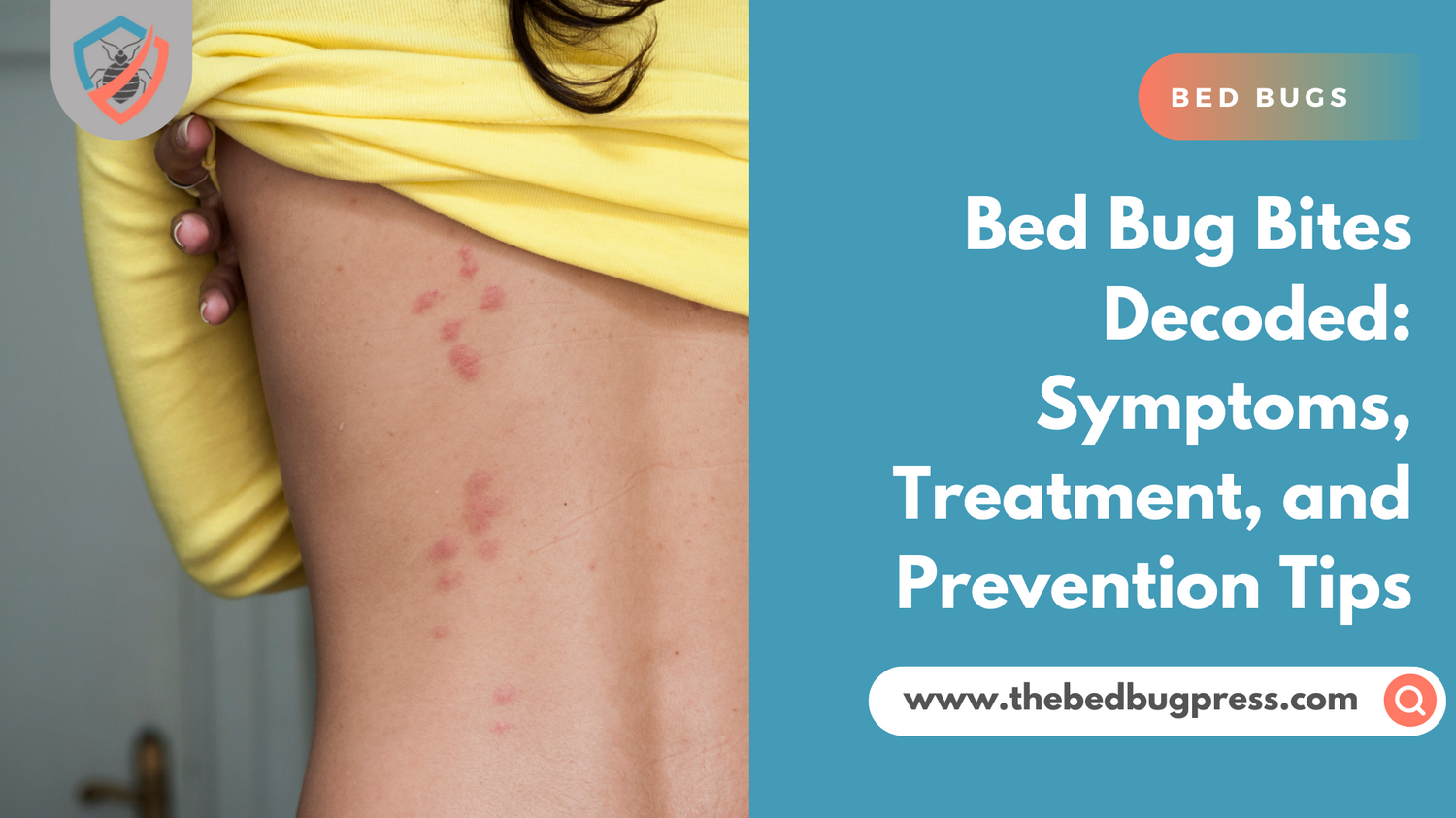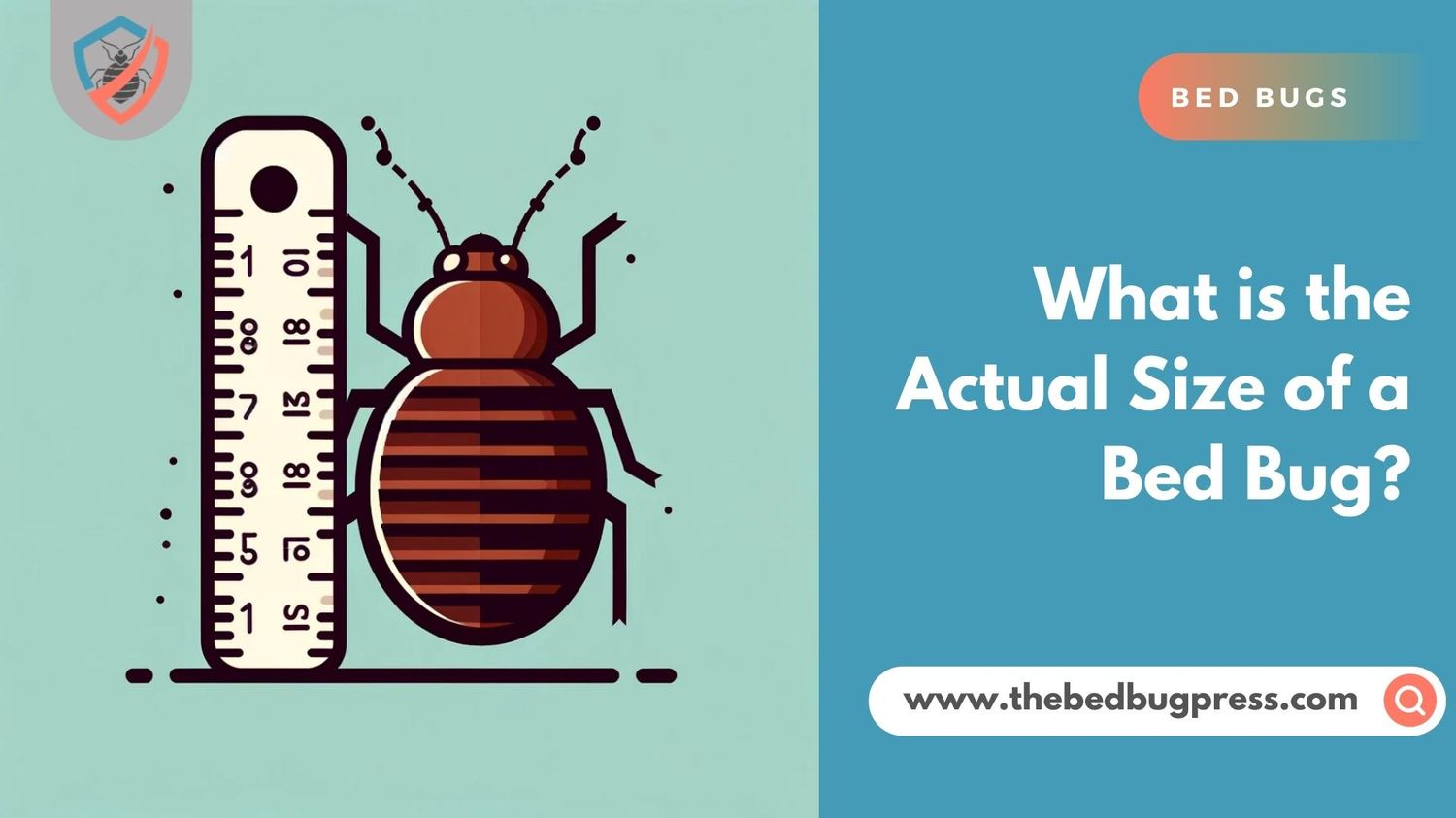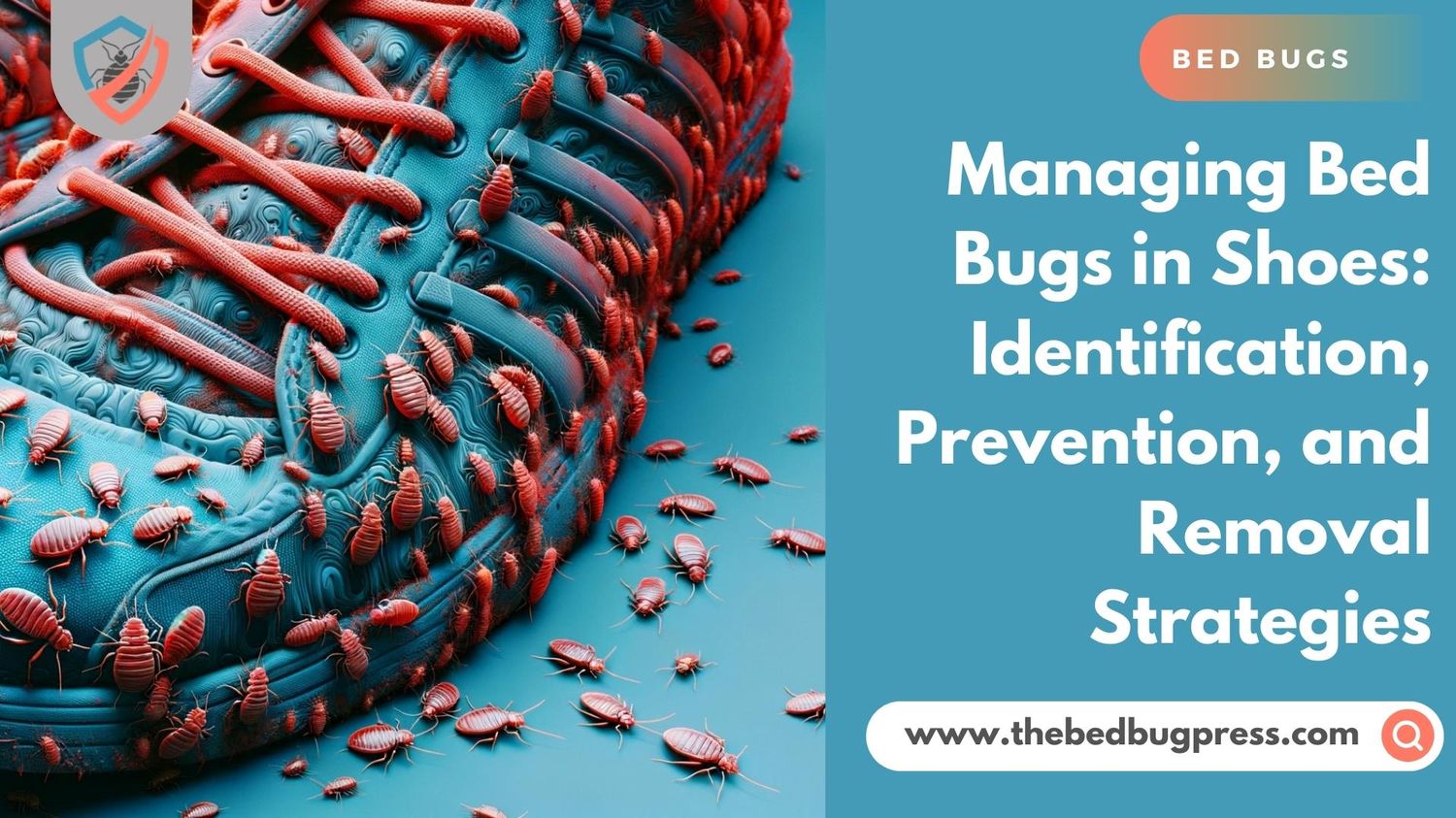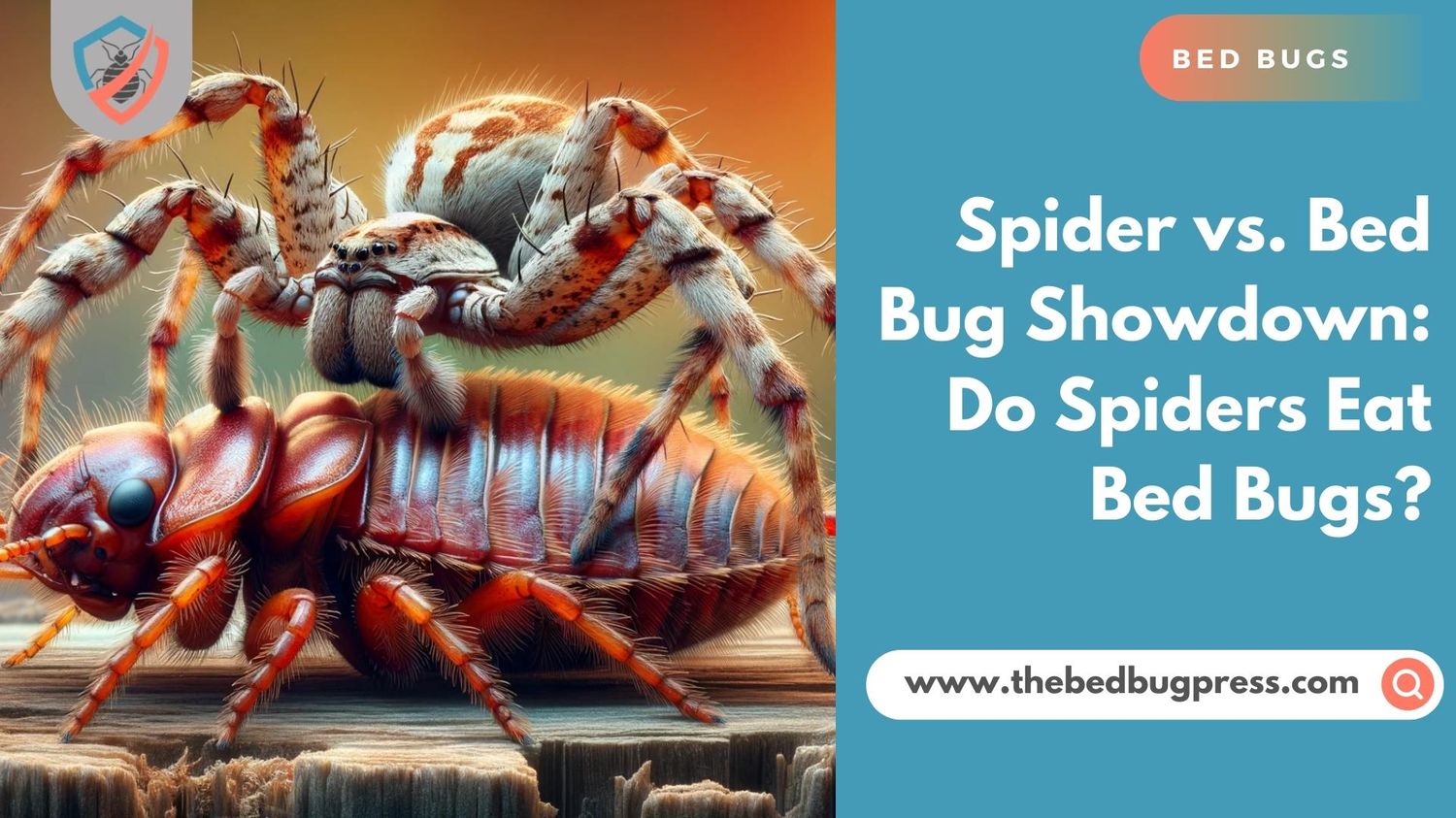Bed bug infestations can turn your home into a place of despair. These critters are also becoming resistant to pesticides. This makes DIY methods like isopropyl alcohol or rubbing alcohol more tempting to use as one of your home remedies.
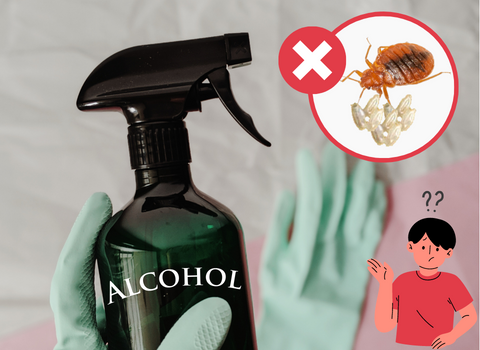
Does alcohol kill bed bugs and their eggs?
Alcohol kills bed bugs and their eggs. However, you should also understand that using alcohol on bed bug infestations is inefficient and may not be the best choice.
Alcohol works in two ways – by acting as a solvent and as a desiccant. As a solvent, it destroys the outer shell of these bloodsuckers.
As a desiccant, it dries out the insides of the bugs. Alcohol kills bed bug eggs in the same manner. It dissolves and dries out the eggs and prevents them from hatching.
Alcohol, however, only kills bed bugs on direct contact. You need to spray the bed bugs directly to kill them with alcohol. The only problem is that it is difficult to find bed bugs.
These critters can hide in small spaces like cracks in furniture and electrical outlets. Getting rubbing alcohol into these areas is almost impossible.
How Does Rubbing Alcohol Kill Bed Bug Eggs?
Use a 91% solution or higher concentrations to get the best results and prevent bed bugs from laying eggs. If you cannot find 91 isopropyl alcohol, you can use a weaker solution. To kill bed bugs’ eggs, you need to spray the infested area directly.
Alcohol may leave stains or marks on the bedding and mattress or furniture that has been painted, lacquered, or varnished. So, transfer the alcohol into a spray bottle to avoid damaging the furniture.
How to Use Rubbing Alcohol to Deal with Bed Bug Bites
Spray the top of the mattress with alcohol and let it dry before bedtime to prevent the bugs from invading your bed.
Since these critters move slowly, replacing your current sheets with new ones every night will keep bed bugs away from you. Do not forget to spray down your body with alcohol before you go to bed to repel bed bugs.
It is important to note that while rubbing alcohol may repel bed bugs, it is not a long-term solution for dealing with a bed bug infestation. It is recommended to consult with a professional pest control to address the problem and eliminate the infestation.
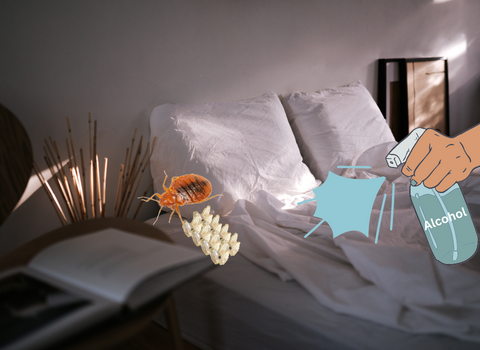
Does Spraying Alcohol Kill Bed Bug Eggs? – Risks of Using Alcohol to Kill Bed Bugs
Alcohol evaporates quickly, so you will need multiple treatments to get the best results. It is highly flammable, so avoid smoking around the areas getting alcohol treatment and be sure to use it in a well-ventilated area and away from any open flames or heat sources.
Since bed bug eggs can take up to 2 weeks to hatch, you should spray the infested areas every 2 to 3 days for 2 weeks to kill the eggs and nymphs.
While rubbing alcohol can be used to deal with bed bug bites, it is not a cure for the bites themselves. If you have been bitten, you should clean the bites with soap and water and apply an over-the-counter anti-itch cream or hydrocortisone cream to alleviate the itching.
What the EPA Recommends
EPA recommends an integrated approach that combines non-chemical and chemical methods when dealing with bed bugs. Hiring a pest control company can be expensive, but it will help you kill bed bugs as well as save time and money in the long run. There are some that offer a free consultation that will lessen your emotional distress.
EPA also recommends washing and drying your bedding, fabrics, and clothes on the highest heat setting. You should subject all rooms to high heat (49°C or 120°F) for at least 90 minutes as well. Professional exterminators offer this service.
Freezing Bed Bugs to Death: Effective Remedy
Another option is to freeze items you cannot wash or dry at 18°C or 0°F. It is also a good idea to encase box springs, pillows, and mattresses in bedbug-proof covers with zippers. You can use bed bug interceptors to prevent these critters from invading your bed.
Bed bugs are extremely resilient and can survive for months without consuming anything. So, leave the infested items in a sealed container for several months to a year to kill the bugs.
Using Pesticides: An Effective Solution
You can also treat your items and home with pesticides. Check out EPA’s interactive list to find the pesticide that meets your needs. General pesticides will not work against bed bugs, so make sure that you are using a pesticide that is designed for treating bed bugs.
Follow the timetable and dosage on the label. If you do not apply the right dosage at the right interval, the bugs could become resistant to the pesticide. In some areas, bed bugs have become resistant to pesticides that contain neonicotinoids, pyrethrins, and pyrethroids.
If you cannot deal with the infestation alone, you can seek professional help before you apply the pesticide.
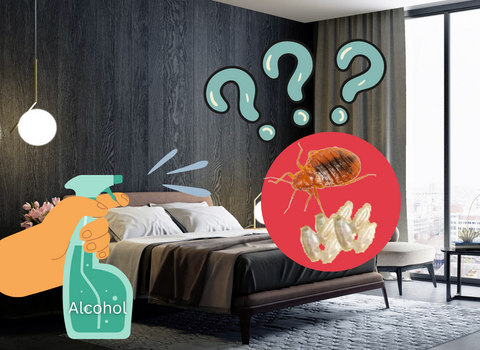
Does Rubbing Alcohol Kill Bed Bugs?
Rubbing alcohol, also known as isopropyl alcohol, can be used to kill bed bugs on contact. Bed bugs sprayed directly with alcohol can result in dehydration and death. However, it is not a long-term solution for dealing with a bedbug infestation.
Because rubbing alcohol dries quickly, it will not provide residual protection and will not keep killing all the bed bugs after it has dried. Additionally, since bed bugs often hide in cracks and crevices, it can be difficult to get the rubbing alcohol to reach all of the bed bugs.
It is important to note that while rubbing alcohol kill bed bugs instantly on contact, it is not a substitute for a comprehensive bed bug control program. To effectively eliminate an infestation, it is recommended to consult with a professional pest control company. They will be able to determine the extent of the bed bug problem, provide treatment options and help to prevent future infestations.
The First Step When Dealing with Bed Bugs
Before you start treating your home, make sure that you are dealing with a bed bug infestation. The most common signs of a bed bug infestation include yellow or white molted shells, small reddish marks on the bedding, itchy red bites on your skin, and a sweet odor in heavily infested areas.
You may see the bugs themselves as well. They are usually found near the piping on the mattress.
Once you have confirmed that you have a bed bug infestation, it is important to take immediate action to address the problem. This includes identifying and treating all areas where bed bugs may be present, such as the bed, bed frames, headboards, box springs, and nearby furniture. It is also important to thoroughly inspect and clean all clothing, linens, and personal items, as well as any other items that may have come into contact with bed bugs.
It is also important to take steps to prevent future infestations by regularly inspecting your home, and taking preventative measures when traveling or staying in hotels, such as inspecting bedding and furniture before settling in.
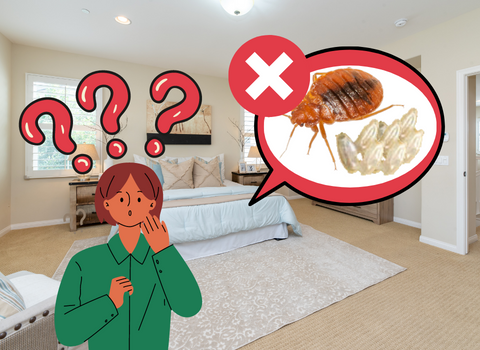
Summary
You can use rubbing alcohol to kill bed bugs. However, it is only a temporary solution. Alcohol should be directly applied to the bed bugs to kill them. This can be difficult to accomplish because bed bugs usually hide in crevices and cracks. Even if you can douse or spray them with alcohol, you will not be able to kill all of them.
Spraying alcohol around your home could also present a fire hazard because it is highly flammable. You will get better results by using an integrated approach to get rid of bed bugs. This can be done by removing or isolating bed bug-infested items from your house and using pesticides properly.
Steam can also kill bed bugs, nymphs, and eggs if it is applied properly. If you are planning to steam clean your belongings, consider getting an infrared thermometer so that you can monitor the temperature of the items being treated.
The surface temperature of the item or area must be at least 160°F to 180°F to kill bed bugs. If you are not successful, you can call a professional exterminator to solve the problem for you.


